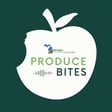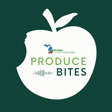
Farm to School
This episode features Lori Yelton, Nutrition and Food Management Consultant with MDARD, Mary Rose Vanas, Food Service Director for Shelby Public Schools, Landen Tetil, Produce Safety Technician with the Marquette County Conversation District, and Mariel Borgman, Community Food Systems Educator with MSU Extension. They discuss the value farm to school has on the community, and provide their own perspectives on food safety in farm to school settings.
Additional Resources:
Michigan Agriculture Facts and Figures – https://www.michigan.gov/documents/mdard/MI_Ag_Facts__Figures_474011_7.pdf
MDARD Magazine 2020 – https://farmflavor.com/michigan/michigan-magazine/michigan-agriculture-2020/
USDA Farm to School Resources – https://www.fns.usda.gov/cfs/farm-school-resources
MSU-CRFS Cultivate Michigan – https://www.cultivatemichigan.org/resources
Groundworks – https://www.tencentsmichigan.org/build_your_farm_to_school_program
Farm Flavor Michigan – https://farmflavor.com/michigan/michigan-ag-education/michigans-farm-to-school-connection/
Taste the Local Difference – https://www.localdifference.org/
MSU Extension Community Food Systems Team Members – https://www.canr.msu.edu/community_food_systems/experts
Recorded On-Farm Food Safety Webinar: Michigan Farm to Institution Network Virtual Network Meeting – https://www.canr.msu.edu/resources/mfin-on-farm-food-safety-webinar
Michigan Farm to School: Serving Up Local Foods – https://www.canr.msu.edu/resources/michigan-farm-to-school-fact-sheet
Information brief: How do institutional food service professionals know that produce from their suppliers is safe? – https://www.canr.msu.edu/resources/institutional-food-safety
National Farm to School Network – http://www.farmtoschool.org/
Funding for this podcast was made possible in part by the Food and Drug Administration through grant PAR-16-137. The views expressed in the posted materials do not necessarily reflect the official policies of the Department of Health and Human Services, nor does any mention of trade names, commercial practices or organization imply endorsement by the United States Government.

